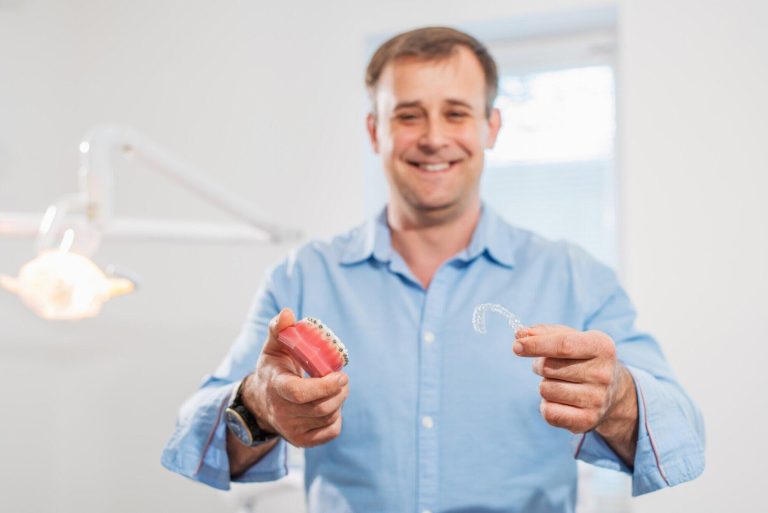Every person’s skin tells a story written in their genes. Hidden beneath the surface, DNA reveals the traits that shape how skin looks, reacts, and changes over time.
Genetic testing for skin care opens a new path to understanding what your skin truly needs. It looks deeper than surface clues and connects your routine to what’s written in your DNA, helping create care that feels truly personal.
In this blog, we will discuss how genetic testing for skin care offers personalized solutions for healthy skin.
How Your Genes Influence Skin Health
Your genes control many aspects of how your skin develops and behaves. They guide how cells renew, how moisture is stored, and how your body reacts to stress. These natural codes create patterns that make your skin different from anyone else’s.
Understanding genetic influence allows experts to find what your skin is most prone to. It explains why some people deal with dryness while others face early fine lines. Each DNA strand provides insight into how your skin maintains balance over time.
Through genetic analysis for skin health, a complete map of your skin’s traits can be built. This information becomes the key to forming a customized beauty routine. It helps you understand your skin on a deeper, more scientific level.
The Role of DNA in Aging, Hydration, and Sensitivity
DNA shapes how your skin ages, stays hydrated, and reacts to the world. It controls collagen strength, moisture balance, and sensitivity, revealing why every person’s skin looks and feels unique.
Collagen and Elasticity: Genes that affect firmness and wrinkle formation
Collagen production is guided by specific genetic codes. When collagen fibers weaken faster, fine lines and wrinkles appear earlier. Understanding these genes can show how your skin handles time and external stress.
Elasticity depends on the strength of these same structures. Some people’s DNA naturally supports long-lasting firmness, while others need more support to stay smooth. These differences can shape how aging appears across the face and body.
A personalized DNA skincare test can highlight how collagen behaves in your system. This insight helps design routines focused on long-term firmness. It’s a smart way to understand what makes your skin stay youthful.
Hydration Balance: DNA links to moisture retention and dryness
Hydration levels are not the same for everyone. DNA defines how well your skin can trap and hold water. If your genes signal low lipid production, dryness may occur more often.
Certain genetic markers control how fast moisture evaporates from your skin. When this happens too quickly, your skin feels tight and uneven. Understanding this connection allows experts to shape a more effective hydration plan.
Genetic analysis for skin health often focuses on these hydration patterns. It reveals how your skin naturally protects itself from dehydration. This helps build a daily routine that maintains a smooth, glowing look.
Skin Sensitivity: Genetic traits tied to irritation and inflammation
Skin sensitivity is more than just a reaction; it’s written in your DNA. Certain genes control how the skin’s barrier responds to outside factors like the sun or pollution. If these genes are weaker, irritation can appear faster.
Inflammation is also genetically linked. Some people’s DNA causes higher levels of immune response, which makes redness more common. Understanding these traits helps prevent recurring discomfort.
By learning how your genes handle sensitivity, you can choose products made for your skin’s rhythm. A customized beauty routine builds stability over time. It helps your skin find balance naturally.
Why Personalized Skin Care Is More Effective
Skin care is not one-size-fits-all. Every person’s DNA creates unique needs that generic products can’t always meet. That’s why personalized care brings stronger and longer-lasting results.
A personalized DNA skincare test maps how your body reacts to certain ingredients. It connects genetic traits to what actually works on your skin. This helps create a plan that feels natural and precise.
DNA-based skin care solutions take the guessing out of skin wellness. They guide you toward what fits your biology instead of what’s trending. It’s care that fits your skin-not the other way around.
Preventing Common Skin Issues Through DNA Insights
Prevention becomes simpler when you know what your skin is prone to. DNA can show if you’re more likely to face acne, hyperpigmentation, or early wrinkles. This allows proactive care before issues start.
Each DNA pattern reveals potential weak spots in your skin’s defense system. These insights let you create a barrier before damage begins. It’s a forward way to manage your skin’s natural future.
This type of planning also supports long-term skin health. A personalized system based on genetic testing lets your routine evolve with your needs. It keeps your skin balanced and healthy at every stage.
How Genetic Testing Enhances Your Daily Skin Care Routine
Genetic testing takes your routine from general to exact. It replaces trial and error with real scientific data. A DNA test for skin health makes it easier to understand what your skin truly requires.
Each result from a test helps match you with products that fit your skin type. The data shows how your skin reacts to environmental stress, hydration levels, and repair speed. It gives structure to your daily care.
Using these insights turns your routine into a science-backed ritual. Instead of random choices, every product becomes part of a purpose. This approach builds consistency and confidence in your daily skin journey.
From Data to Daily Care: Turning Test Results into Action
Turning DNA data into daily skin care creates a routine built on science. It helps you move from test results to real actions that match your skin’s unique genetic needs.
Analyzing Your DNA Report
Reading a DNA report may seem complex, but it’s direct once explained. Each section links to hydration, elasticity, and protection levels. These metrics are the blueprint for your care plan.
By looking at genetic strengths and weaknesses, you learn what your skin handles best. This prevents the need to test random products. The clarity saves time and avoids stress.
The report also grows with new data over time. As science advances, your understanding expands too. This makes your routine smarter year after year.
Matching Products to Genetic Needs
Every gene carries its own skin requirement. By matching these with specific product ingredients, results become more balanced. The match ensures your skin receives exactly what it needs.
For example, if your DNA shows low moisture retention, heavier hydrating products will be key. If your collagen levels are strong, focus can shift to protection and balance. Each product serves a clear role.
A customized beauty routine built from DNA findings becomes consistent and reliable. It limits trial errors and supports your natural traits. Over time, this keeps your skin in its best state.
Tracking Progress Over Time
Monitoring progress helps see how your skin evolves. Genetic testing creates a starting point that you can measure against future results. It’s an ongoing process rather than a single event.
By tracking changes, you’ll see how your customized beauty routine adapts with age and lifestyle. This reflection helps maintain steady progress. Your care becomes a living science.
Consistent tracking also keeps motivation high. Seeing results shaped by your DNA makes it personal. It connects daily care to long-term confidence.
Personalized Formulations Based on Your Genetic Profile
Formulations built from your genetic map are unique. They focus on what your DNA shows as strong and what needs support. This precision creates a balance between nature and science.
Each formula connects directly to results from your personalized DNA skincare test. If genes show slow cell renewal, products will target faster turnover. If genes reveal dryness, hydration becomes the focus.
This direct link between DNA and care forms the core of modern beauty. It ensures products don’t just feel good but work with biological accuracy. That’s what makes them powerful and reliable.
The Link Between DNA and Sun Damage Response
Some skin types handle sunlight better than others, and DNA explains why. Genes regulate melanin production, which affects how your skin reacts to UV rays. These genetic traits decide how much protection your skin needs.
When DNA reveals low melanin activity, sun protection becomes essential. This doesn’t mean avoiding sunlight, but understanding your skin’s limits. The more you know, the better you protect.
Sun damage is one of the biggest causes of visible aging. Knowing your genes helps you take smart steps early. It’s prevention rooted in science, not chance.
Genetic Testing and Hormonal Skin Changes
Hormonal changes affect skin more than most people realize. DNA shows how your body might respond to these shifts. Some genes make skin more reactive during hormonal fluctuations.
These patterns often explain breakouts, dryness, or dullness linked to life stages. By knowing them early, you can adjust care before problems appear. It’s a proactive way to manage natural change.
Genetic analysis for skin health helps decode these cycles clearly. It turns unpredictable skin moments into understandable patterns. This understanding gives you control over how your skin evolves.
The Future of DNA-Driven Beauty Innovations
The beauty field is rapidly evolving with DNA insights. Scientists are learning how to turn genetic data into skincare breakthroughs. Every discovery brings us closer to truly personalized care.
Soon, products may respond instantly to your body’s changing needs. Imagine routines that adapt in real time based on your DNA signals. That’s the next step for modern skin care.
As research expands, DNA-based skin care solutions will become more accessible. They’ll shape how people approach health, beauty, and prevention. It’s a future driven by precision and personalization.
Comparing Traditional Skin Care vs. DNA-Based Solutions
Traditional skin care relies on trial and surface observation. It often treats symptoms without understanding their deeper causes. This can lead to frustration and waste.
DNA-based methods go beneath the surface. They find what triggers those symptoms before they start. This makes routines more efficient and aligned with natural biology.
By blending genetic insight with modern science, results become more stable. Your skin gets what it actually needs, not what’s guessed. It’s the smarter way to approach skin wellness.
Ethical Considerations in Genetic Skin Testing
Ethics play a key role in all forms of genetic testing. When it comes to skin care, privacy and consent are essential parts of the process. People deserve to know how their data is collected, stored, and used to protect their identity and maintain trust.
Reputable companies treat this information with the highest level of security. They use encryption systems to make sure personal details and test results remain confidential. Clear communication about data handling helps build confidence between users and providers.
Ethics also include proper education and understanding. Users should be informed about what their genetic results mean and how to apply them responsibly. When people know how to use this data, they can make informed decisions that promote safe and ethical use of genetic testing.
Building a Sustainable, Science-Backed Skin Routine
A sustainable routine focuses on more than short-term results. It builds care that lasts by understanding what your skin truly needs. DNA testing helps create this type of mindful, long-term system.
By learning from your genes, you can make choices that are both efficient and intentional. This reduces waste from unused products and eliminates unnecessary steps. Every decision becomes a reflection of care, precision, and purpose.

































































